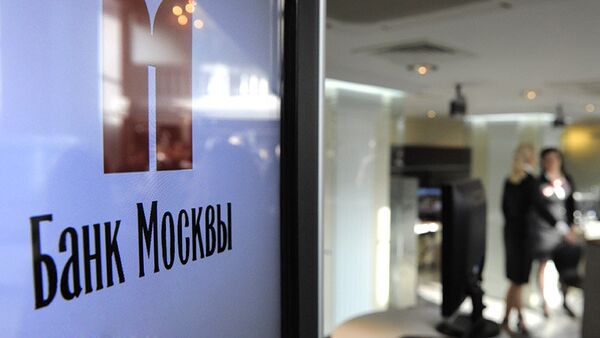State-owned VTB bank was ruled by political will rather than business strategy when it made the decision to acquire Bank of Moscow, an investment vehicle of former Moscow Mayor Yury Luzhkov, banking sources said on Thursday.
President Dmitry Medvedev, who faces elections next March, fired Luzhkov last fall over a loss of trust and replaced him with Prime Minister Vladimir Putin's ally and his chief of staff Sergei Sobyanin.
Luzhkov administered the country's wealthiest city for 18 years, during which his wife Yelena Baturina became Russia's richest woman with a $2.9-billion fortune earned in the city's construction business. Luzhkov angered the Kremlin by suggesting it needed a stronger and more decisive leader and strongly opposed the pressure to quit.
In February, VTB bought 46.48% of Bank of Moscow, Russia's fifth largest bank by assets, from the new capital's government and as well as a 25% stake in insurer Stolichnaya Strakhovaya Gruppa, which owns 17.3% in Bank of Moscow. VTB said it wanted to obtain full control over the bank by summer.
"The decision that VTB should buy Bank of Moscow was taken by the state's top officials to eliminate one of the core strongholds of the Luzhkovs' financial empire," a banking source said.
"VTB, being a state bank, could not have refused and under the guise of developing retail services in Moscow and having lots of funds undertook the task."
But full acquisition hit a snag as Bank of Moscow President Andrei Borodin, whom Luzhkov appointed to head the bank in 1999 when Borodin was 27, and his aide Lev Alaluyev hold a 20.3% stake in the bank and refused to sell.
A fierce boardroom battle ensued which seems to have ended this week with Borodin fleeing to London to join Luzhkov and his wife Yelena Baturina, Russia's wealthiest woman, and a host of Russian businessmen who fell out with authorities.
Falling out with the Kremlin is the most dangerous fate for any local businessman and those who dare to challenge the leadership often lose their assets, face prosecution and eventually flee abroad.
But Borodin says he went to Britain for medical treatment and will be back as soon as he recovers but at home he faces a criminal charge connected with a 12.76-billion ruble ($452 million) credit Bank of Moscow granted to a little-known company. The police claim the money ended on Baturina's personal account, but Bank of Moscow says it violated no rules when issuing the credit.
"From an investor point of view, neither VTB with its manner of attaining its goals, nor Bank of Moscow with its shady operations looks good," a banking analyst said.
Standard & Poor's rating agency put VTB's BBB rating on CreditWatch with negative implications as the 103 billion rubles it had spent on Bank of Moscow acquisition so far threaten to weaken VTB's capital position. The agency said VTB had not investigated Bank of Moscow's asset quality, which might be worse than it officially disclosed.
"We cannot rule out the possibility of the revelation of additional problem loans," S&P said.
"I am not sure that Bank of Moscow is worth the money VTB has paid for it," the banking source said.
In a telephone conversation from London, Borodin said he is ready to solve the conflict with VTB and said he had offered three options to VTB, including a sale of his stake, based on a market capitalization of around $6 billion, down from his previous valuation of between $8.2 billion and $9.6 billion.
Industry analysts say Bank of Moscow will end up in VTB's hands no later than this year.
MOSCOW, April 7 (RIA Novosti, Julie Tolkacheva)


